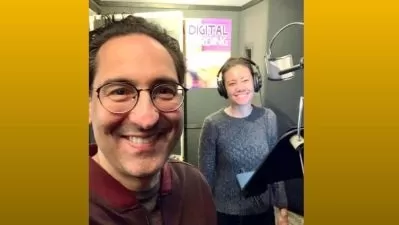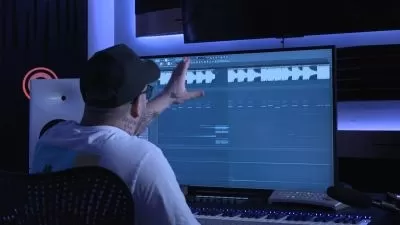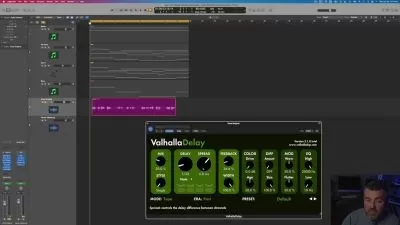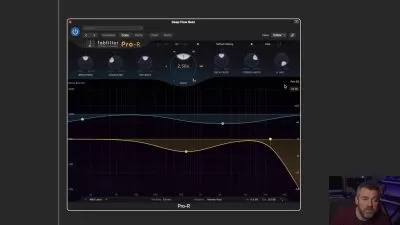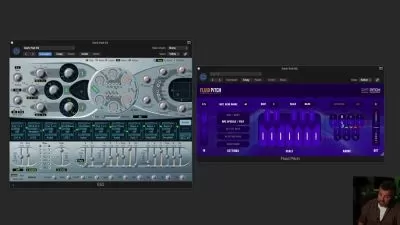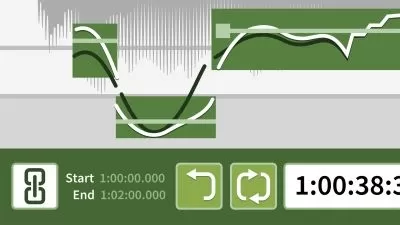About Voice-OverLearn More
Voice-overs are a production technique vital to multiple forms of media. Local news broadcasts, documentaries, podcasts, and radio productions all use voice-overs as tools for telling stories.
Sort by:
Sorting
The newest
Most visited
Course time
Subtitle
Filtering
Courses
Subtitle

Udemy


Voiceover Masterclass
Voice-Over Training: Advanced Voice-Over Techniques and Tips 2:17:06
English subtitles
05/01/2024
Subtitle

Udemy


Voiceover Masterclass
Voice Acting & Character Voices for Video Games & Animations 6:32:52
English subtitles
05/01/2024
Subtitle
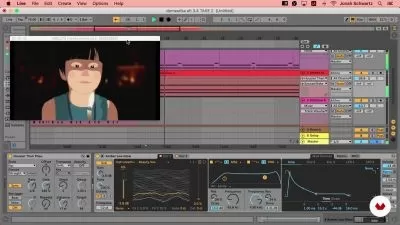
DomestikaMusical Composition for Short Films with Ableton Live by Jonah Schwartz
4:08:01
English subtitles
02/26/2024
Frequently asked questions about Voice-Over
Voice-over is the craft of recording an actor’s voice remotely and inserting it post-production into a video or film production. Typically, clients employ professional voice-over artists or actors. Voice-over is a widely used tool that appears in far more projects than you may realize. There are many uses for voice-overs, including voicing animated characters, narration, dialogue in commercials, automated phone messages, instructional videos, and statements like disclaimers or information sources.
Voice-over actors need to deliver clear copy using the style necessary for the project, whether it’s a funny cartoon character or a serious business briefing. The words must flow easily and sound conversational rather than sound like it's being read. In the case of narration performance, audiences will have no lips to read or body language cues, so quality enunciation is a critical aspect of this work. Voice-over actors also need vocal training for performances such as foreign accents, portraying children, or fantastical fictional characters. To evoke emotions, voice-over actors benefit from having some acting skills.
When it comes to voiceover technique, the actor needs to consider a few different elements. Understanding the context of the project and learning how to control your vocals to meet your goals is essential. Pacing is really important. Knowing when to talk fast, when to pause, and speaking naturally are all critical with each project. Inflection is also key, as tone, pitch, and emotional cues will inform the audience. Work with your director to understand which keywords you need to emphasize and match the piece's temperament. Is it dry, humorous, or dramatic? This is where your acting skills come into play. Finally, if you can vocalize non-human sounds, you’ll have another valuable skill to bring to your craft.







